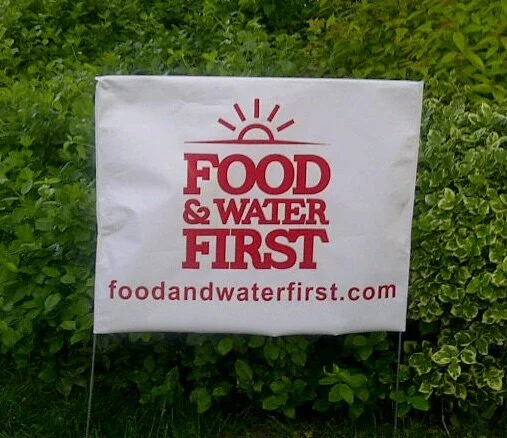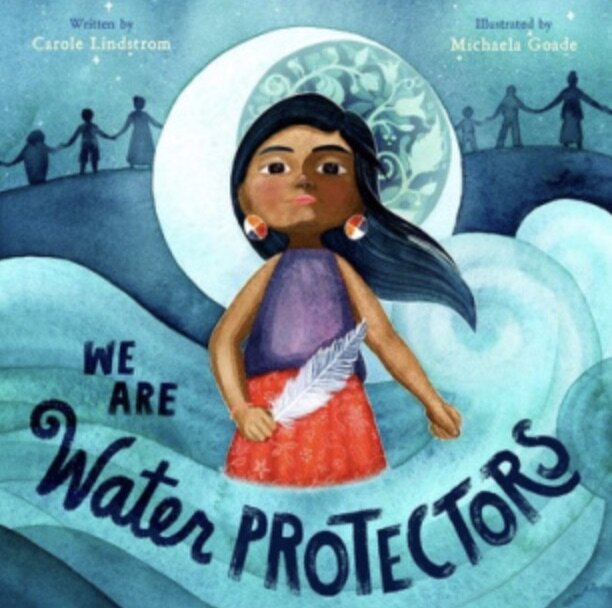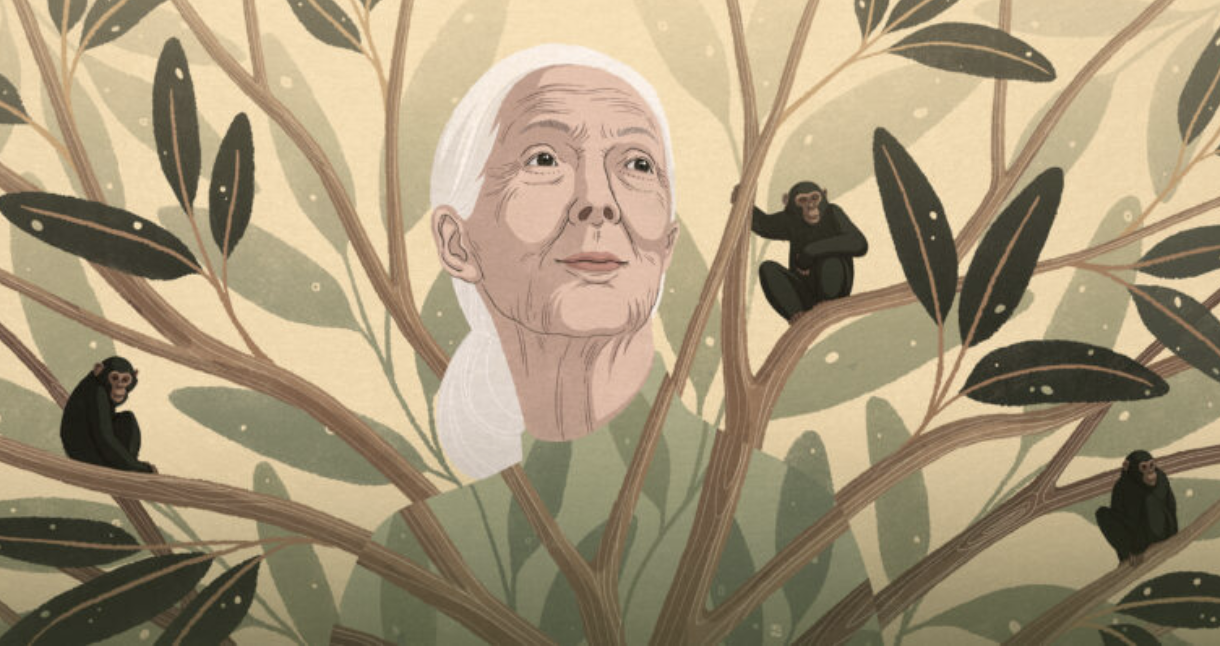Deep Ecology
T he importance of correcting our relationship with the environment is the most pressing problem facing humanity. But seeing issues of the environment as separate from ourselves, something to be worked upon, perpetuates the mindset that is at the base of the challenge before us.
Deep ecology, sees the entirety of the universe — all plant and animal life, all the elements, the cycles of weather, the grand sweep of space and stars — as intertwined, interdependent, woven together in one fabric. It takes as a starting place that matters of ecology are deeply spiritual matters. And as such, they require both our heart and our mind to be in attendance.
For watching…
In written word, and simple video, here is a poem that draws together the ecological and the spiritual, reminding us, as we seem to have forgotten, that all the universe and everything in it, is sacred. This is What was Bequeathed Us, from Gregory Orr’s How Beautiful the Beloved.
This video was produced by Hellmann’s (yup, the mayonnaise people!) It tells the story of the food on our tables and why we’re in danger of losing our food sustainability. A Food & Water First “Must Watch.”
At a time when everything we love seems to be at risk, Joanna Macy offers a kind of road map for this unique moment in human history when we must come alive to our truest power, to "look straight into the face of our time," and to participate in the Great Turning. What is the Great Turning? It is, as Joanna describes it, the shift from the industrial growth society to a life-sustaining one.
For reading…
For listening…
President and founder of Sojourners, Rev. Jim Wallis welcomes best-selling author Margaret Atwood for a conversation on the effect that debt — monetary, spiritual, and ecological — are having on people and the planet. Together, they explore why Margaret’s groundbreaking novel, “The Handmaid’s Tale,” is even more prescient today, and why loving your neighbor means loving your neighbor’s oxygen, too.
In Rainer Maria Rilke’s seminal collection of poetry, The Book of Hours: Love Poems to God, the great twentieth-century poet explores the nature of—and his relationship to—God through divinely “received” prayers.
The coming stage of evolution, Teilhard de Chardin said, won’t be driven by physical adaptation but by human consciousness, creativity, and spirit. On Being visits with his biographer Ursula King, and we experience his ideas energizing New York Times Dot Earth blogger Andrew Revkin and evolutionary biologist David Sloan Wilson.
For engaging…
Journey of the Universe is a scientific, philosophical, spiritual, and poetic offering for those seeking to understand the dynamic unfolding story in which we find ourselves. You can learn about it through readin ght ebook, watching the movie, listening to a podcast, or taking a course.
Food and Water First is a local initiative that has morphed int a larger movement with a mandate to put farmland and the water that feeds it - and us - first. it is a feet on the grounds movement, and you - whoever you are and where ever you live - can get involved.
Search the collection
Journey of the Universe is a scientific, philosophical, spiritual, and poetic offering for those seeking to understand the dynamic unfolding story in which we find ourselves. You can learn about it through readin ght ebook, watching the movie, listening to a podcast, or taking a course.
Sustainability is often referred to as “deep ecology” and it considers the ecosystem as a living whole of which humanity is only one part. In this complex web of interrelationships all species are dependent upon each other, and it is this dynamic pattern of inter-relationship that needs to be sustained. No one part can be considered as separate from the whole.
As rampant urbanization increasingly severs humanity from the living world, naturalist Michael McCarthy explores the ways in which the “anthropause,” ushered in by the coronavirus, has—on an unprecedented scale—made nature visible again.
As Robin Wall Kimmerer harvests serviceberries alongside the birds, she considers the ethic of reciprocity that lies at the heart of the gift economy. How, she asks, can we learn from Indigenous wisdom and ecological systems to reimagine currencies of exchange?
President and founder of Sojourners, Rev. Jim Wallis welcomes best-selling author Margaret Atwood for a conversation on the effect that debt — monetary, spiritual, and ecological — are having on people and the planet. Together, they explore why Margaret’s groundbreaking novel, “The Handmaid’s Tale,” is even more prescient today, and why loving your neighbor means loving your neighbor’s oxygen, too.
In Rainer Maria Rilke’s seminal collection of poetry, The Book of Hours: Love Poems to God, the great twentieth-century poet explores the nature of—and his relationship to—God through divinely “received” prayers.
The coming stage of evolution, Teilhard de Chardin said, won’t be driven by physical adaptation but by human consciousness, creativity, and spirit. On Being visits with his biographer Ursula King, and we experience his ideas energizing New York Times Dot Earth blogger Andrew Revkin and evolutionary biologist David Sloan Wilson.
In written word, and simple video, here is a poem that draws together the ecological and the spiritual, reminding us, as we seem to have forgotten, that all the universe and everything in it, is sacred. This is What was Bequeathed Us, from Gregory Orr’s How Beautiful the Beloved.
Lorraine Johnson is an environmentalist, passionate gardener and activist. In 2002, she released her seminal work, The Gardener’s Manifesto. This call to action has inspired a generation of gardeners to embrace their work with an ecological and social purpose - and to plant native plants on their properties.
Here is a wonderful conversation about climate change and moral imagination with a leading environmentalist and writer who has been ahead of the curve on this issue since he wrote The End of Nature in 1989. It explores his evolving perspective on human responsibility in a changing natural world.
This video was produced by Hellmann’s (yup, the mayonnaise people!) It tells the story of the food on our tables and why we’re in danger of losing our food sustainability. A Food & Water First “Must Watch.”
Food and Water First is a local initiative that has morphed int a larger movement with a mandate to put farmland and the water that feeds it - and us - first. it is a feet on the grounds movement, and you - whoever you are and where ever you live - can get involved.
The season of Eastertide is the season of resurrection, the season of new life. Arriving at the same time as the emergence of spring, we have all around us evidence that from the cold, hard, seemingly barren ground, astonishing wonders may emerge. Wendell Berry has learned from the earth and offers us his manifesto for practicing resurrection.
We Are the Water Protectors, written for 3 – 6 year olds, nurtures and strengthens the inclination to safeguard Mother Earth. Written by Carole Lindstrom, tribally enrolled with the Turtle Mountain Band of Ojibwe and a fierce water protector herself, with accompanying pictures by Michaela Goade, an award-winning designer and illustrator of Tlingit descent, it is a thoughtful reflection on the interconnectedness of water and those who must care for it.
At a time when everything we love seems to be at risk, Joanna Macy offers a kind of road map for this unique moment in human history when we must come alive to our truest power, to "look straight into the face of our time," and to participate in the Great Turning. What is the Great Turning? It is, as Joanna describes it, the shift from the industrial growth society to a life-sustaining one.
For people living in the Arctic, climate change is hacking away at their foundation. It drives storm surges, washes out roads and clogs rivers with sediments. It produces sinkholes and triggers landslides capable of altering the topography and tilting houses. The climate crisis is even seen by some as a form of environmental racism — a problem created down south and suffered up north. Susan Nerberg, from Broadview.org headed up north to witness these dramatic changes.
Krista Tippet from The On Being Project, interviews Jane Goodall. Goodall’s early research studying chimpanzees helped shape the self-understanding of our species and recalled modern Western science to the fact that we are a part of nature, not separate from it. From her decades studying chimpanzees in the Gombe forest to her more recent years attending to human poverty and misunderstanding, she reflects on the moral and spiritual convictions that have driven her, and what she is teaching and still learning about what it means to be human.
In this podcast from The On Being Project with Krista Tippet, Krista speaks with one of her beloved teachers, Ellen Davis, as they ponder the world and our place in it, through sacred text, with fresh eyes. We’re accompanied by the meditative and prophetic poetry of Wendell Berry, read for us from his home in Kentucky. If you are interested in how our Biblical text connects to the environmental movement, here is a wonderful exploration of farming, scripture, and how we are bound in a sacred relationship with our earthly home.


















